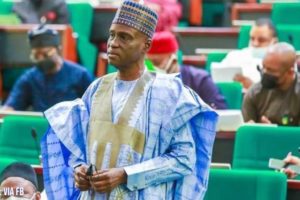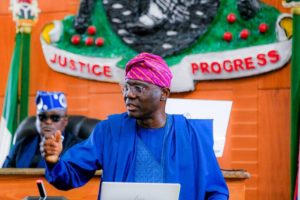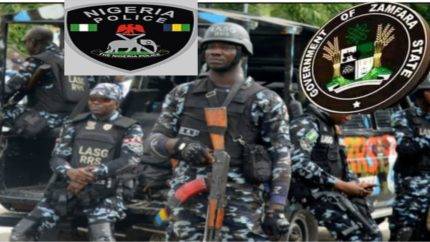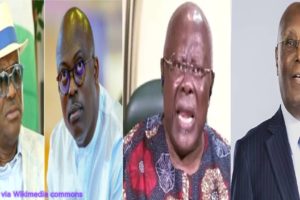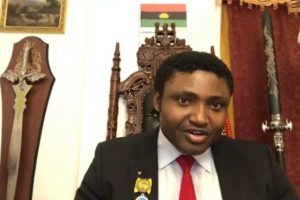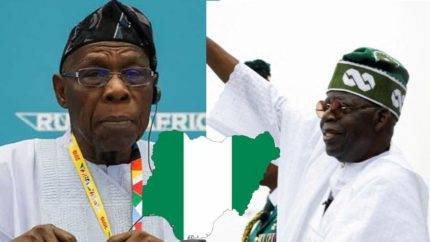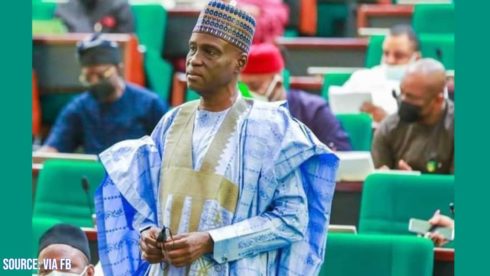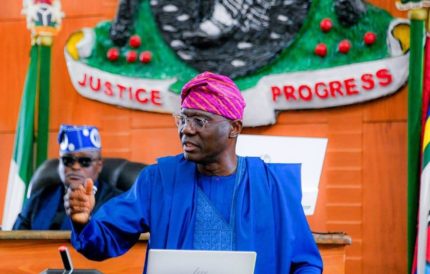The Presidency, in a recent interview, placed the responsibility for the current state of Nigeria’s Democracy squarely on former President Olusegun . According to Bayo Onanuga, the Special Adviser to the President on Information and Strategy, Obasanjo played a pivotal role in introducing the current democratic model during his leadership as both military Head of State (1976–1979) and civilian President (1999–2007). Onanuga expressed that Obasanjo’s criticism of the democratic system appears contradictory, considering his historical involvement in its adoption and practice.
The adviser highlighted Obasanjo’s call for an “Afro democracy,” emphasizing the need for a system tailored to Africa’s unique needs. However, the Presidency countered by asserting that if former President Olusegun genuinely believes in reform, he should advocate for a return to the parliamentary system, which the British left for Nigeria before the military interruption in 1966.
Obasanjo Criticizes Western Democracy
Former President Obasanjo’s recent critique of Western democracy, claiming it has not delivered good governance and development in Africa, adds another layer to the ongoing discourse. former President Olusegun proposed an “Afro democracy,” arguing that the Western model neglects African history and multicultural complexities, leading to a government that does not fully represent all the people. He highlighted the weakness of liberal democracy, especially in its failure to address the welfare and well-being of the entire population.
In response, the Presidency questioned Obasanjo’s inconsistency, pointing out that he failed to advocate for a better system during his tenure. Onanuga specifically criticized former President Olusegun for accepting the American-style presidential democracy recommended by the constitutional assembly in 1999, deviating from the parliamentary system practiced before the military intervention.
The Call for “Afro Democracy”
Obasanjo’s proposition for an “Afro democracy” tailored to Africa’s unique context sparks a renewed debate on the appropriateness of Western democratic models in African nations. He contends that the current system, inherited from colonial powers, does not consider African history and complexities. The former president emphasized the need for Africans to actively participate in defining and designing their system of government, arguing against a representative democracy that excludes the majority.
The Presidency, however, insists on Obasanjo’s historical role in implementing the current presidential system, criticizing his deviation from the parliamentary model. Onanuga argued that former President Olusegun should advocate for the parliamentary system if he genuinely believes in reforming Nigeria’s governance structure.
Weaknesses in Western Liberal Democracy
Obasanjo’s criticism of Western liberal democracy as a government of a few over all the people raises questions about the effectiveness of this model in the African context. He pointed out the flaws in the representation of the majority and the exclusion of the minority, suggesting that such a system is not conducive to the welfare and well-being of all citizens.
The Presidency, while acknowledging these critiques, places the responsibility on Obasanjo for poorly implementing the presidential system during his tenure. Onanuga contends that former President should be advocating for a return to the parliamentary system, as it was the original form of governance left by the British.
Presidency’s Critique of Obasanjo’s Model Implementation
The Presidency, in a detailed response, criticized Obasanjo’s implementation of the presidential system, arguing that he copied the form and structure without capturing its essence. Onanuga highlighted that Obasanjo’s attempt to modify the constitution during his presidency revealed a lack of understanding and commitment to the spirit of the system.
In contrast, Obasanjo’s call for a reexamination and moderation of democracy in Africa remains grounded in his belief that the current system, with its flaws, does not serve the best interests of the people.
The Need for Reform and Advocacy
In the heart of Nigeria’s political landscape, a contentious debate has emerged, drawing attention to the urgent requirement for reform within the nation’s democratic framework. The focal point of this discourse centers on the contrasting perspectives of the current Presidency and former President Obasanjo. Obasanjo, a key figure in Nigeria’s political history, advocates for an “Afro democracy” that acknowledges and addresses the unique challenges faced by the African continent. In response, the Presidency challenges Obasanjo to actively champion a return to the parliamentary system if he genuinely believes in the imperative nature of reform.
This clash of opinions not only reveals the deep-seated differences within the political elite but also highlights the pressing need for a comprehensive examination and restructuring of Nigeria’s democratic processes. The intricacies of this debate have ignited public interest, prompting citizens to contemplate the direction in which their nation’s governance should evolve. As the discourse continues to unfold, the potential impact on public opinion remains uncertain, leaving observers eagerly anticipating the potential transformation of Nigeria’s democratic landscape.
Table of Contents
Discover more from OGM News NG
Subscribe to get the latest posts sent to your email.

